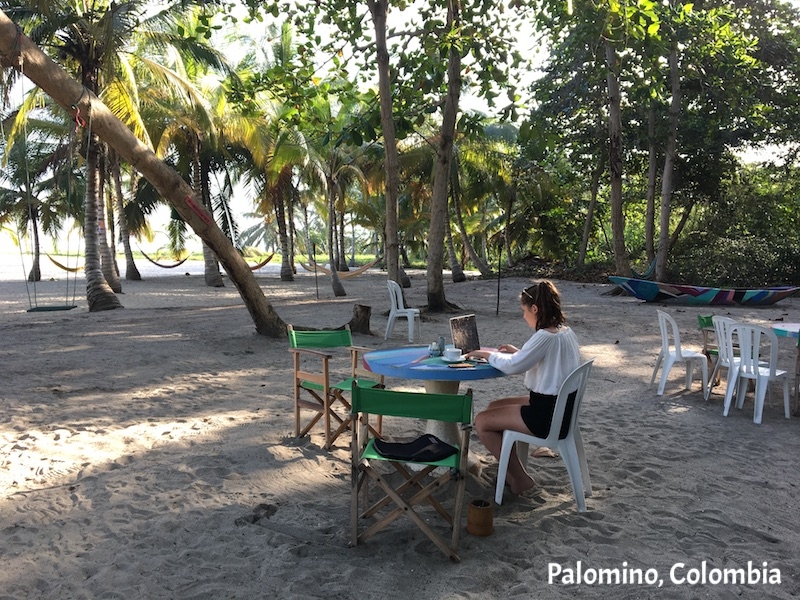I’m done flirting; it’s time to commit
If you’ve come here expecting to read some salacious story about my dating life, you may be disappointed, as I thankfully managed to turn that aspect of my life around some years ago. Stick around though, you may find that what I have to say is actually more interesting... yeah, I know!
I’ve long flirted with the notion of becoming a Workplace Strategist. The idea took shape when I embarked on an extended period of travelling, living and working as a digital nomad a few years prior to the time the world as we knew it took an unexpected dive headfirst off a cliff.
I lived and worked in 17 countries over 24 months, experiencing the full spectrum of Coworking and Coliving offerings at a time when the industry was still in its infancy. This experience led to my research study: #MyLifeAsADigitalNomad, which in turn opened the door to a shiny new world. I participated in a digital nomad conference in Gran Canaria, presented my insights at the Workplace Trends Research Summit in London and Future Spaces in Finland, amongst others. It felt new and exciting and was positively received. I made valuable connections with workplace strategists, academic researchers, interior architects, biophilic design experts and a whole host of other interesting people whose professions I had not known existed until that time. I feel very drawn to this community and its spectrum of skills that are vital to designing the workplaces of today and beyond.
Fast forward a few years and I’d navigated my way through a Pandemic, IVF and resulting parenthood. Like many others my business took a hit during this period, but I was able to keep afloat whilst also succeeding in leveraging my remote working and ‘workplace’ credentials to win a few small projects. It was still just a situationship however, and a challenge to build it into something more sustainable.
As the owner of an insight business, I’ve always felt it prudent to have one foot in the present and the other in the future. I’m not blind to the fact that I’m going to have to fight to stay relevant and desirable in an industry where it’s essential to have your finger on the pulse. I know some fantastic insight consultants in their 50s, 60s and beyond who are extremely successful, but I’m aware that in today’s harsh climate, youth and lower day rates are often valued over experience and wisdom. In the back of my mind I’m always thinking about my next step. This is where I find myself drawn back to Workplace Strategy every time...but why?
I believe being able to work in an environment conducive to producing high quality work and that is aligned with our human needs should be a right not a luxury or a ‘perk’
It’s a fascinating, evolving area that will require a great deal of love and attention in the coming years and I am willing to give that in abundance
It’s a shift rather than a complete 180 so my skills and experience remain relevant
It’s an area where I believe experience and wisdom are valued highly
Attending the Workplace Trends User Experience Conference earlier this month, learning about all the ground breaking and meaningful work that’s taking place in this sector, and meeting even more smart, forward thinking workplace professionals, cemented things for me.
So here we are. It’s time to make the statement out loud and be more than a little vulnerable. I’m here to embrace a new challenge. That’s right; I’m committing. I will remain faithful and loyal. I’m eager to learn and embrace each opportunity that arises. I will take any advice you have to offer.
OK, that wasn’t as scary as I thought it would be.
Edit: Whilst reviewing this piece an email pinged in my inbox from Jobgether, alerting me to the Top 100 Future of Work Leaders Report. https://jobgether.com/top-100-flexible-influencer. I sifted through, happy to see at least 10 professionals that I’ve met or worked with over the last 5 years. I don’t want to get too far ahead of myself, but wouldn’t it be nice...?
*Watch this (work)space...*








